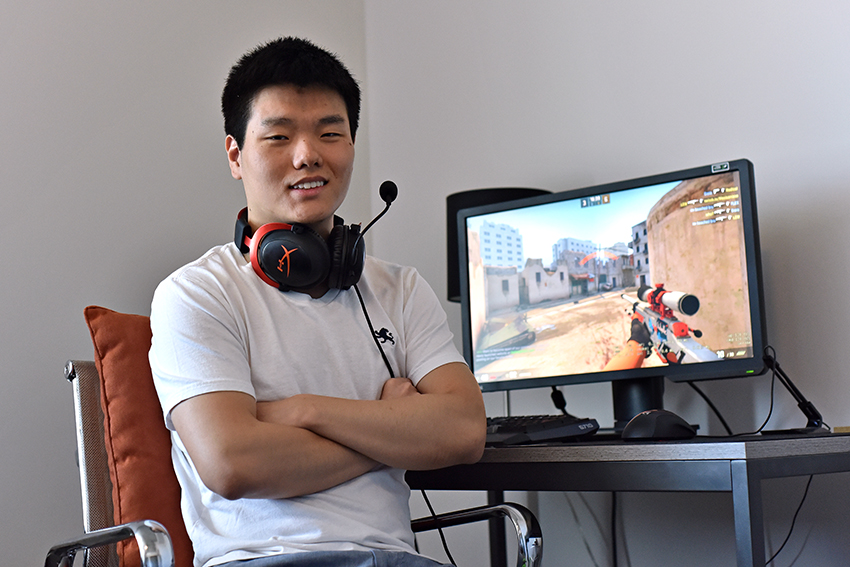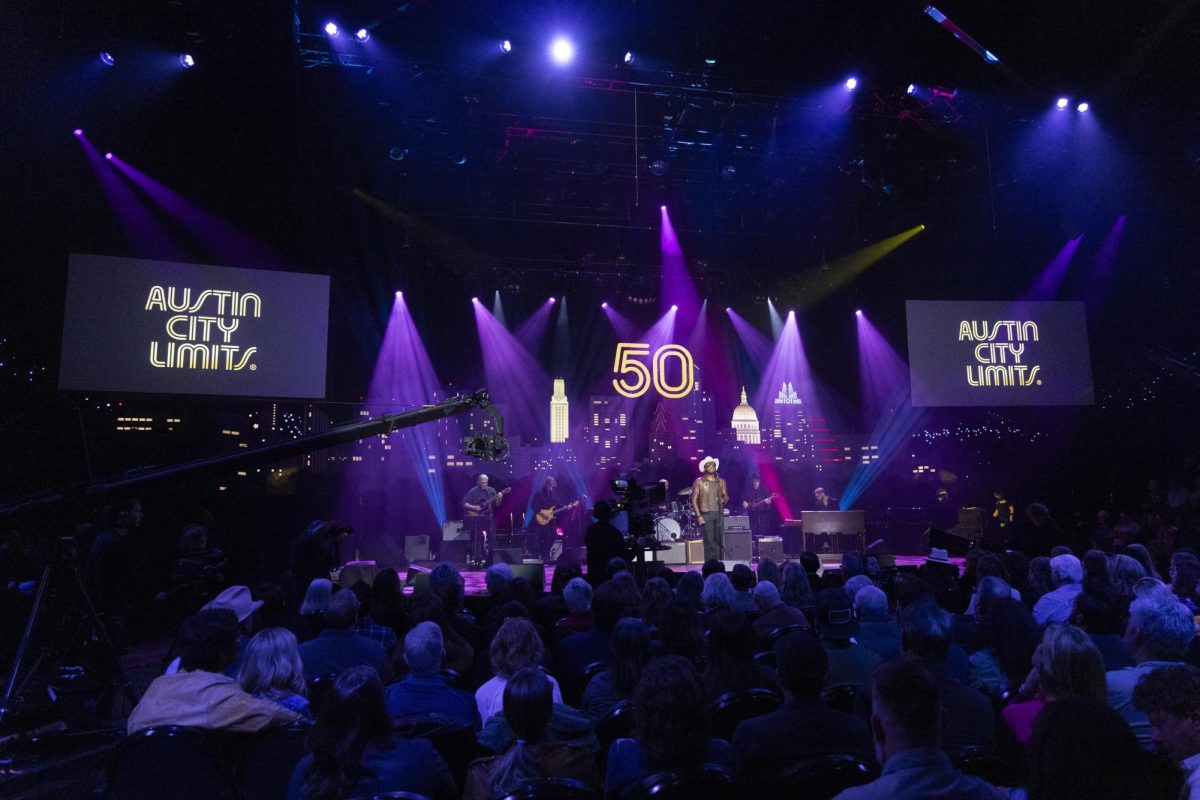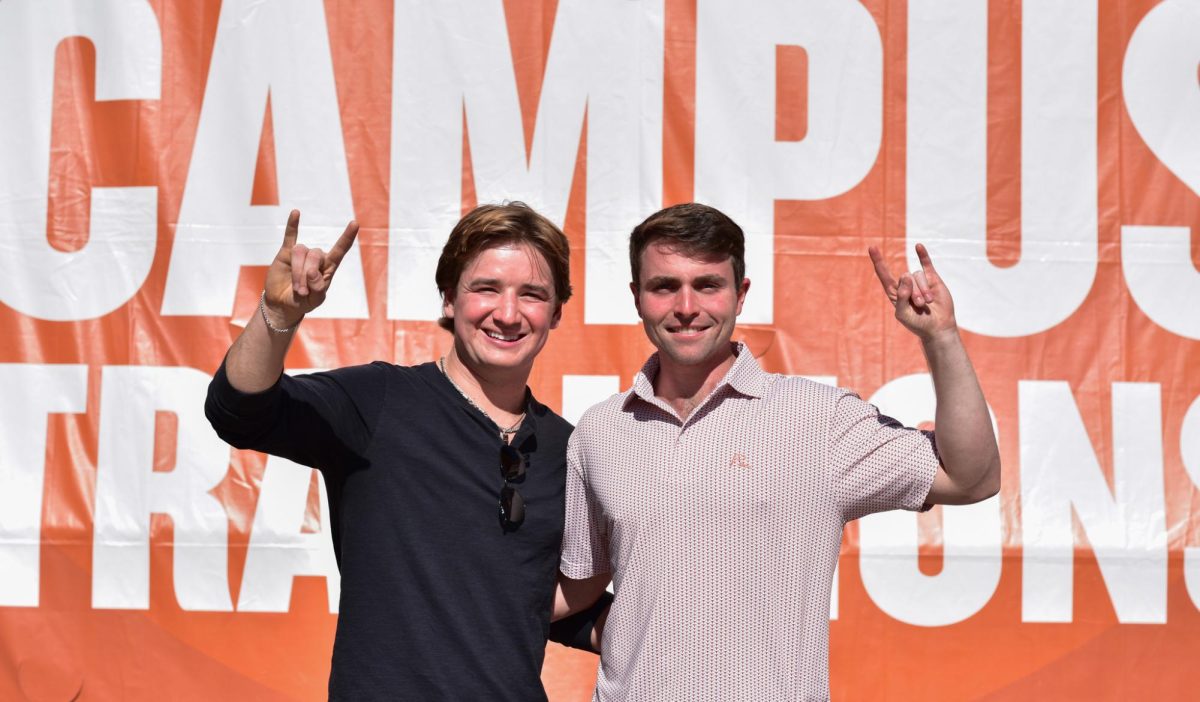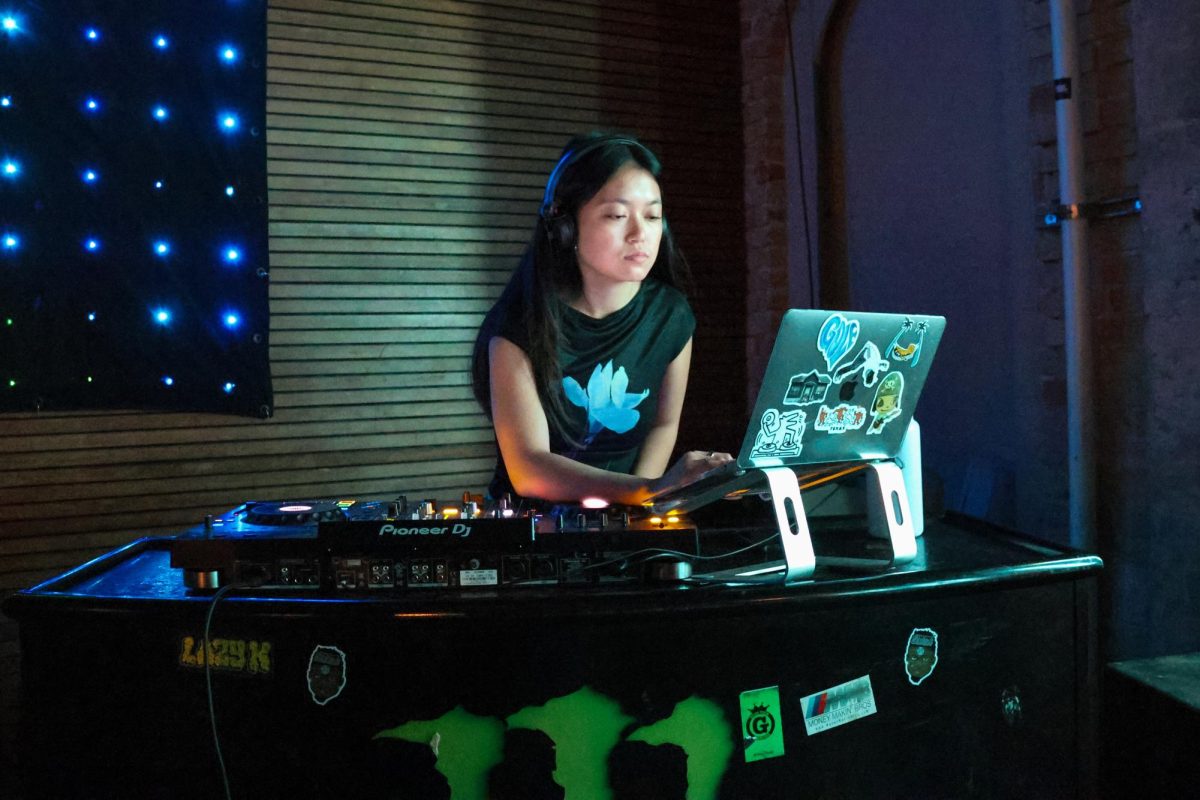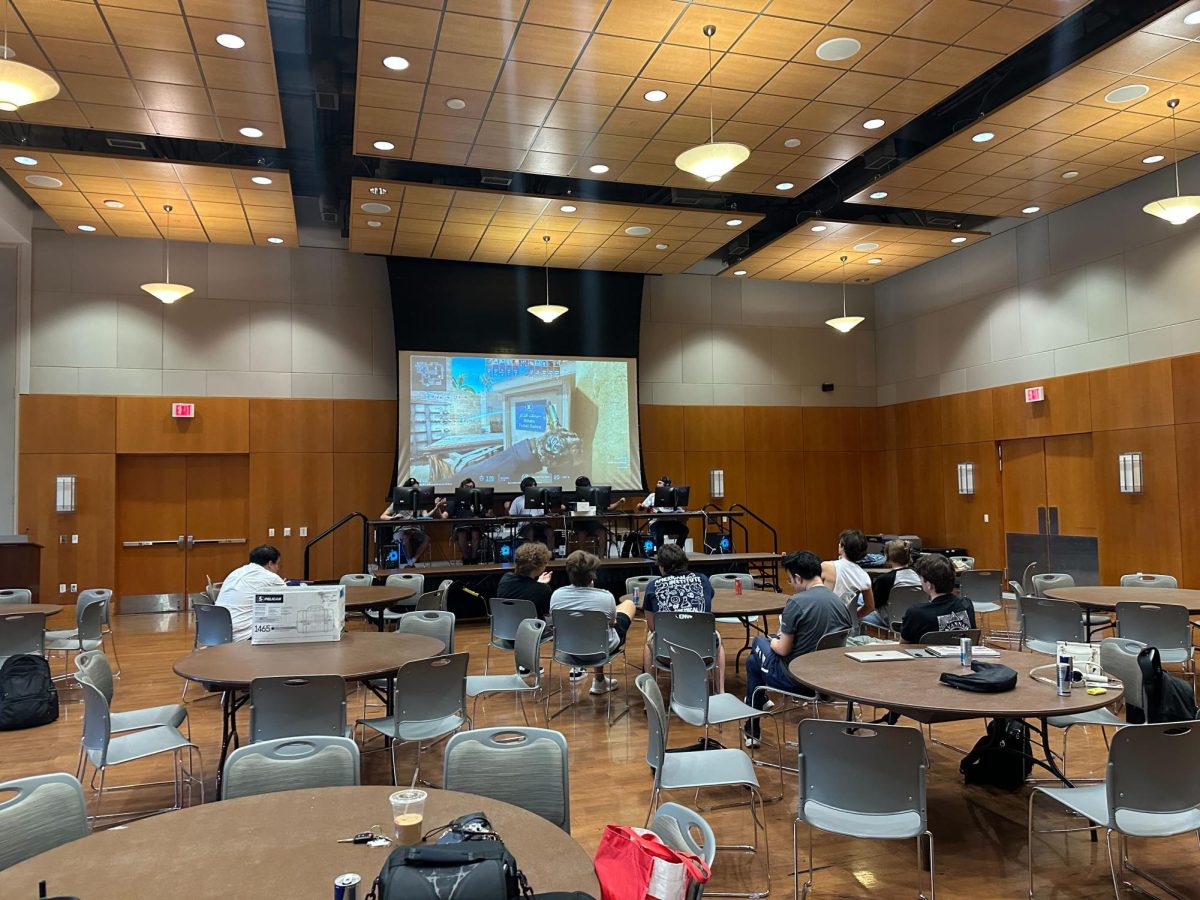A deafening roar shakes the packed stadium as one team claims victory over their opponents. But instead of celebrating on the basketball court, the victors jump up from computer monitors on a stage.
Such a scene can be found at e-sports tournaments across the globe, and the UT Counter-Strike team aims to get in on the glory. Counter-Strike: Global Offensive (CS:GO) is a multiplayer first person shooter (FPS) game, a popular platform for professional competitive video gaming, also known as e-sports. Biology sophomore and team manager Michelle Song created the team, titled Matthew McConaughey Fan Club, within the Longhorn Gaming club last fall. The team placed seventh during last spring’s final competition and recently registered for their second season. The new team is led by economics senior Kevin Guo and will compete in this year’s playoffs at Dreamhack Austin in the spring.
E-sports have seen explosive growth in recent years. The largest worldwide CS:GO tournament held this summer, the ELEAGUE Season 1 Global Championship in Atlanta, commanded a prize pool of more than $1 million. However, not all sectors of the industry have expanded at the same rate. The college CS:GO scene still has room to grow, as the first CSL finals this spring offered a prize pool of $5,000.
“Last year was the first big year for collegiate CS:GO,” Guo said, “The prize pool has grown 10 times from last year.”
Guo started playing Counter-Strike in sixth grade, but didn’t begin playing competitively until his freshman year of college at Texas A&M. In spring 2016, he transferred to UT and later joined UTCS.
Although some may think e-sports are not legitimate sports, professional players need the same quick analytical skills, focus and mental stamina as their traditionally athletic counterparts. Communication and memorization strategies are especially important in team games like CS:GO.
“You have raw execution,” Guo said. “That’s reaction time, aim, reflexes. That’s a very basic skill. There’s also a more cerebral side to the game, which I think is my strength as a leader. I can read the game. If X happens, then I know how to react.”
In addition to her duties as team manager, Song works for CSL as the community manager for the Southern region.
“Coming into college, I already knew I wanted to be more involved with e-sports or just CS:GO in general,” Song said. “I have a really big passion for it. I basically spent my senior year [of high school] playing it all the time. I really like the community of CS:GO. You can actually communicate with people.”
Beyond growing the overall Counter-Strike scene, Song hopes to increase female participation and interest in CS:GO and other games on campus.
“It’s kind of hard as a girl to play CS:GO because it’s a very male-dominated game,” Song said. “I’m trying to promote co-ed teams, and see if we can do a girls’ league.”
As competitive CS:GO becomes more legitimate and better organized, more opportunities are arising to pursue a full time career in the industry. Collegiate level team members such as Song and Guo are considering whether or not they want to commit to that path.
“I really enjoy playing CS right now, and I’ve enjoyed playing it for a long time,” Guo said. “Career-wise, that would be really interesting. If that’s something that’s legitimately possible, and fulfilling personally and financially, then yeah, why not?”

